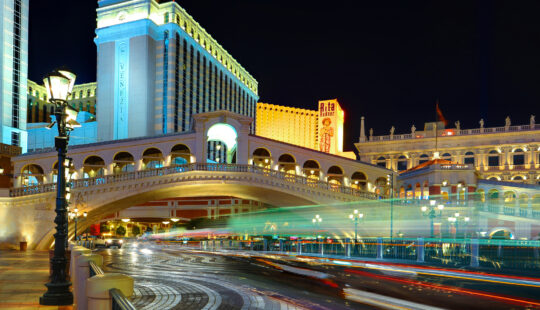WALLDORF — SAP SE (NYSE: SAP) today announced 5 & 5 by ’25, a corporate initiative targeting five percent of addressable spend* with social enterprises and with diverse businesses by 2025. In setting this target, SAP aims to inspire organizations around the world to buy more goods and services from purposeful suppliers, making a positive collective impact on the societies they operate in.
According to the World Bank, global procurement spend in 2019 was at least USD 14 trillion. By directing even just a small fraction of this spend to certified social enterprises and diverse businesses, organizations have the power to tackle some of the world’s most pressing social and environmental problems.
Based on early pilots in select markets, SAP estimates it could direct up to USD 60 million of its addressable global spend per year to social enterprises and diverse suppliers by 2025. Among DAX companies, this figure is estimated at approximately EUR 2.5 billion, and across U.S. Fortune 500 companies up to USD 25 billion.
SAP Executive Board member for Customer Success and recently appointed Global Buy Social Ambassador for Social Enterprise UK Adaire Fox-Martin announced the 5 & 5 by ’25 initiative at SAP’s Procurement Reimagined event in Singapore.
“Every company in every industry needs to procure,” Fox-Martin said. “We all need soap in our washrooms, landscaping for our offices, food and drink in our cafeterias, marketing services and office supplies. These and many more are all products and services provided by social enterprises and diverse businesses. This is money we are spending anyway. Why not spend it with suppliers who are delivering social impact as well?”
Social enterprises are businesses culturally and operationally focused on changing the world. They are similar to other commercially viable businesses, but with three crucial differences: They are founded and governed on the basis of a clear social or environmental mission; they reinvest the majority of their profit back into this mission; and they are majority controlled solely in the interest of this mission. A diverse supplier is a business that is at least 51 percent owned and operated by an individual or group that is part of a traditionally underrepresented or underserved demographic; such as women-owned businesses, minority-owned businesses and indigenous-owned businesses, among others.
“Together with our customers, partners, diverse suppliers and social enterprises, we have set out to expand social procurement where infrastructure exists and intend to establish the infrastructure and build capacity where it doesn’t,” Fox-Martin added. “We invite our entire ecosystem to learn more and take part, join us in this initiative, and help build the pathways and the momentum to realize this ambition and find a better way to grow.”
To learn more, read “Social Procurement: Finding a Better Way to Grow,” by Fox-Martin.
Visit the SAP News Center. Follow SAP on Twitter at @SAPNews.
About 5 & 5 by ’25
5 & 5 by ’25 is an initiative by SAP designed to encourage organizations across industries to direct more of their addressable spend toward certified social-enterprise and diverse-business suppliers. In joining the initiative, organizations agree to formalize their exploration of social procurement, including partnering with leading intermediaries, adopting social-procurement policies, consuming goods and services from purposeful suppliers, and expanding their engagement with more social enterprises and diverse businesses. The goal is to reach 5 percent of annual addressable procurement spend with social enterprises and with diverse businesses by 2025 and in doing so make significant impact on social inequalities and environmental imperatives. 5 & 5 by ’25 is part of the SAP One Billion Lives program, focused on promoting greater inclusion of social entrepreneurship in the global economy. For more information, visit 5 & 5 by ’25.
About SAP
SAP’s strategy is to help every business run as an intelligent enterprise. As a market leader in enterprise application software, we help companies of all sizes and in all industries run at their best: 77% of the world’s transaction revenue touches an SAP® system. Our machine learning, Internet of Things (IoT), and advanced analytics technologies help turn customers’ businesses into intelligent enterprises. SAP helps give people and organizations deep business insight and fosters collaboration that helps them stay ahead of their competition. We simplify technology for companies so they can consume our software the way they want – without disruption. Our end-to-end suite of applications and services enables business and public customers across 25 industries globally to operate profitably, adapt continuously, and make a difference. With a global network of customers, partners, employees, and thought leaders, SAP helps the world run better and improve people’s lives. For more information, visit www.sap.com.
Note to editors:
To preview and download broadcast-standard stock footage and press photos digitally, please visit www.sap.com/photos. On this platform, you can find high resolution material for your media channels. To view video stories on diverse topics, visit www.sap-tv.com. From this site, you can embed videos into your own Web pages, share video via email links, and subscribe to RSS feeds from SAP TV.
For customers interested in learning more about SAP products:
Global Customer Center: +49 180 534-34-24
United States Only: 1 (800) 872-1SAP (1-800-872-1727)
For more information, press only:
Ilaina Jonas, +1 (646) 923-2834, ilaina.jonas@sap.com, ET
Marcus Winkler, +49 6227 7-67497, marcus.winkler@sap.com, CET
SAP Press Room; press@sap.com
*Addressable spend (as opposed to total spend) includes only a company’s orders for goods and services that can be fulfilled by a social enterprise or diverse business. For specific goods and services such as rent, energy, labor and some professional services, often neither social enterprises nor diverse businesses yet exist that provide them. Estimates based on assessments of SAP’s own spend suggest that between 10 percent and 30 percent of total spend could be designated as addressable spend, depending on country.
Any statements contained in this document that are not historical facts are forward-looking statements as defined in the U.S. Private Securities Litigation Reform Act of 1995. Words such as “anticipate,” “believe,” “estimate,” “expect,” “forecast,” “intend,” “may,” “plan,” “project,” “predict,” “should” and “will” and similar expressions as they relate to SAP are intended to identify such forward-looking statements. SAP undertakes no obligation to publicly update or revise any forward-looking statements. All forward-looking statements are subject to various risks and uncertainties that could cause actual results to differ materially from expectations. The factors that could affect SAP’s future financial results are discussed more fully in SAP’s filings with the U.S. Securities and Exchange Commission (“SEC”), including SAP’s most recent Annual Report on Form 20-F filed with the SEC. Readers are cautioned not to place undue reliance on these forward-looking statements, which speak only as of their dates.
© 2020 SAP SE. All rights reserved.
SAP and other SAP products and services mentioned herein as well as their respective logos are trademarks or registered trademarks of SAP SE in Germany and other countries. Please see https://www.sap.com/copyright for additional trademark information and notices.
Please consider our privacy policy. If you received this press release in your e-mail and you wish to unsubscribe to our mailing list please contact press@sap.com and write Unsubscribe in the subject line.
This article first appeared on the SAP News Center.



